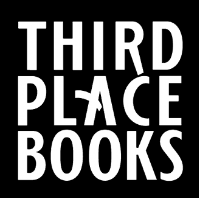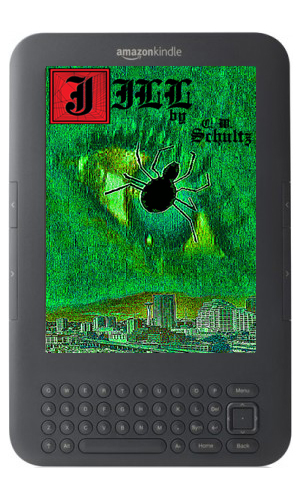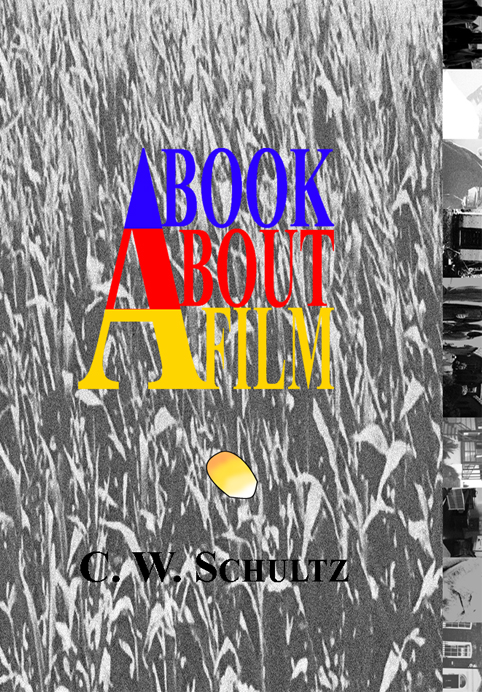It’s been over 10 months since a website update. I think that’s the longest www.cwschultz.com has gone since its launch back in October 2011. Oh, that’s another thing, Happy 5 Years to the website! If all continues to go well, I look forward to another five years with updates on a more frequent basis.
While the updates have been scarce lately, this shouldn’t imply that I haven’t been hard at work. Sure, there’s been a few distractions. Mainly, Snowpuff, the Wife and I have gone from renting an overpriced 650 square foot apartment in the University District to practically stealing (though we legally bought it) the perfect home in West Seattle. And yes, this is great news, but those of you who’ve spent a lot of time in both the University District and West Seattle will understand that it is necessary to just take some time and acclimate.
But even with the change from U-District to Dub-Sea, I refused to allow the creativity to rust. Most of late-2015 and early-2016 was dedicated to promoting my fourth book, A Book About a Film, which received the most promotion out of all my publications, and I’m happy to say was met with very kind words from the folks patient enough to push through it.
Mid-2016, was the start of a fifth novel inspired by the Voynich manuscript, which failed after about four weeks of work and has since been scrapped. But that doesn’t mean it’ll never happen. Keep in mind, I’ve been known to salvage unrealized projects before. Let’s not forget that Yeval was originally a screenplay that was eventually scrapped mainly due to length (having added the internal monologue and elements of transgressive fiction afterwards, when I realized I’d get more attention and satisfaction out of the story being more of an ugly art piece rather than dark entertainment, though I secretly wanted it to be both); and Echo with Laughter was a script rejected by a director/friend/producer for being too “on the nose”, but I ended up turning it into a short-story and Sirens Call Publications published it as The Stairwell. And then, of course, there’s A Book About a Film, that got several false starts between 2010–2014. So, if this Voynich manuscript idea sounds appealing to you, never say never.
But even though that particular “fifth novel” didn’t work out doesn’t mean there’s not another fifth novel in the works. In fact, that’s my main motivation for posting this today. Two chapters and a prologue have been completed, and while this is not deep enough to the point of no return, I’ve written over 17,000 words of internal notes; so, I technically have half a novel’s worth down, so I do think it’s a bit far to turn back. Plus, this was the story I’ve been wanting to write for several years, but have forced myself to hold off. Maybe that’s why the Voynich manuscript idea didn’t work out; maybe I’m simply far more passionate about this current idea than the Voynich one.
So what’s this big passionate idea I have? Isn’t it better to keep you in suspense? No? Well, I respectfully disagree, but I’ll compromise and share some details wit-cha. I’m going back to the first-person narrative. I know, I know, there are a lot of limitations, but I think it’s best for the story. So far, I’ve written four books, my first two in the first-person (Yeval and The Pack) and my most recent two in the third person omniscient (Jill, very omniscient; and A Book About a Film); I’m digging back into the style of my early days of publication, already almost 10 years ago, of first person narration. But like with every new story I write, I want to do it differently. Instead of having one main character narrating the story (props to Randy Mulray and Siggy Farris), I’m going to have several different characters tell their story, which takes place during the buildup of a great war (with an obvious war-is-not-great moral, but I’ll try not to be cliché about it); a writing style that first got my attention when reading Chuck Palahniuk‘s Snuff.
As for when you’ll get to read this work all depends on how long it takes me to write it, which in turn depends on how long it is. I’ve been pretty accurate with my release date estimations but have a tendency to overestimate my word count during the writing process. Right now, it looks like I’m on track to meet my one-novel-every-three-years average (so late-2018), with a likely length of 125,000 words. Before finishing the first chapter, I thought all my ideas would result in a read far more dense, like 300,000 words; but, like with my other books, when I get the ideas on paper, I like to keep things tight. I don’t like a moment of boredom, or a single word to go to waste. An editor for Jill once told me I had so much going on so quickly—a statement I couldn’t deny, originally planning to divide the story into 2–4 separate books—but I refused the suggestion to fluff my material. Reading takes time and it’s very easy to get bored. A reader should be entertained from the first word to the last; and there should be things underneath the surface, between the lines, so the reader is motivated to come back and discover something that wasn’t there the first time. So, will this fifth novel that’s gone from 300,000 words down to 125,000 words perhaps go lower? I doubt it, because unlike Jill, which was a beginning, middle and an end that I thought could be so expansive that I’d have to divide it up; this fifth novel is a beginning, middle and end to the start of a great war. Will I want to write about the war itself and the aftermath of it? Maybe, but that would be two different books. And while I’ve said before that I generally find sequels unnecessary, a sequel(s) to novel #5 might be necessary.
But here’s a critical thing: I don’t want to be that writer who just publishes book after book, as if it’s the size of the bibliography that counts instead of the actual stories. While I don’t think of my work in terms of good or bad (that’s the reader’s job, not the writer’s), my books mean a lot to me and I intend that each of them continue to count for something. A day won’t come when I do this strictly for money or the size of my bibliography or to stay relevant, etc. I write because it makes me happy; sometimes it’s therapeutic, other times I simply just want to write. If the day comes when I stop loving it, I won’t force some piece of tripe into the world. Like I said, reading is hard. It takes time and patience. To present to the world a story so insincere is, to me, a writer’s greatest crime.
I’m not saying I’ve published masterpieces. Again, it’s up to the reader to decide good or bad, not the writer. I fully admit that the grammar Nazis would have a field day with me. But only someone who has absolutely no creative backbone could think that something not printed through those huge publishing houses (most of which have at least a couple of errors of their own) could be free of any grammar issues. There’s a difference between presentable and quality. One is polished, the other may be something that’s tarnished; but many times, the latter has more heart. And despite any shortcomings I have as a writer (like shamelessly starting sentences with “and” and “but”), my work always comes from the heart. And while the criticizers say some pretty funny things, it’s those that enjoyed my books and write me about it who make this all worthwhile. Chef Ben Shewry once told himself after he received one of his first compliments, “[I]f there’s one table that likes it, there will be others.” I don’t see why the same doesn’t go for books.
So even though I write because I love it, it’s the kind words of those who took the time to send me compliments that keeps me going. And, with that said, I’ll get back to writing.
Best,
C-Dub
 k Third Place Books is carrying copies of
k Third Place Books is carrying copies of  C. W. Schultz’s third novel
C. W. Schultz’s third novel  C. W. Schultz’s 2007 debut
C. W. Schultz’s 2007 debut  C. W. Schultz’s fourth novel
C. W. Schultz’s fourth novel